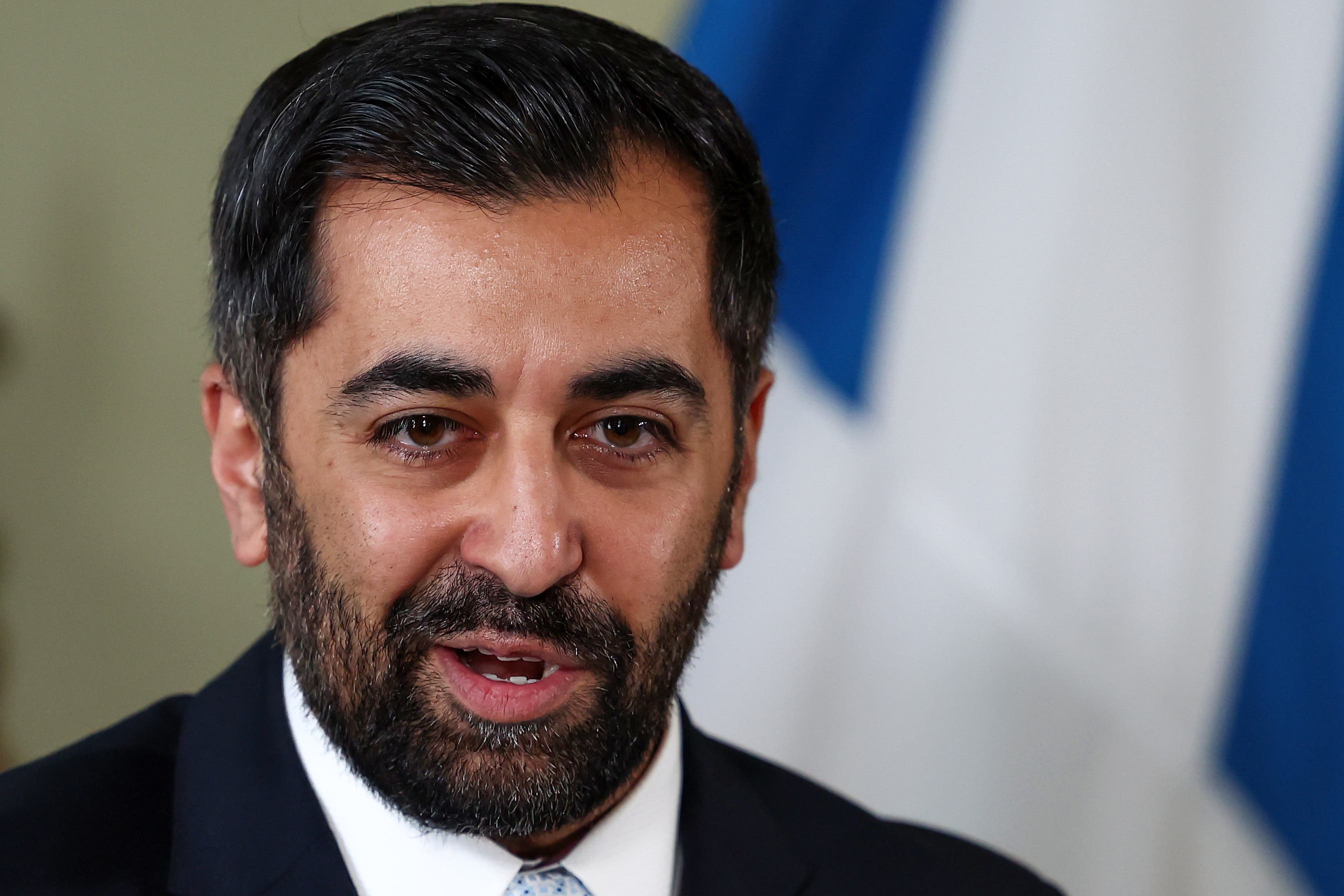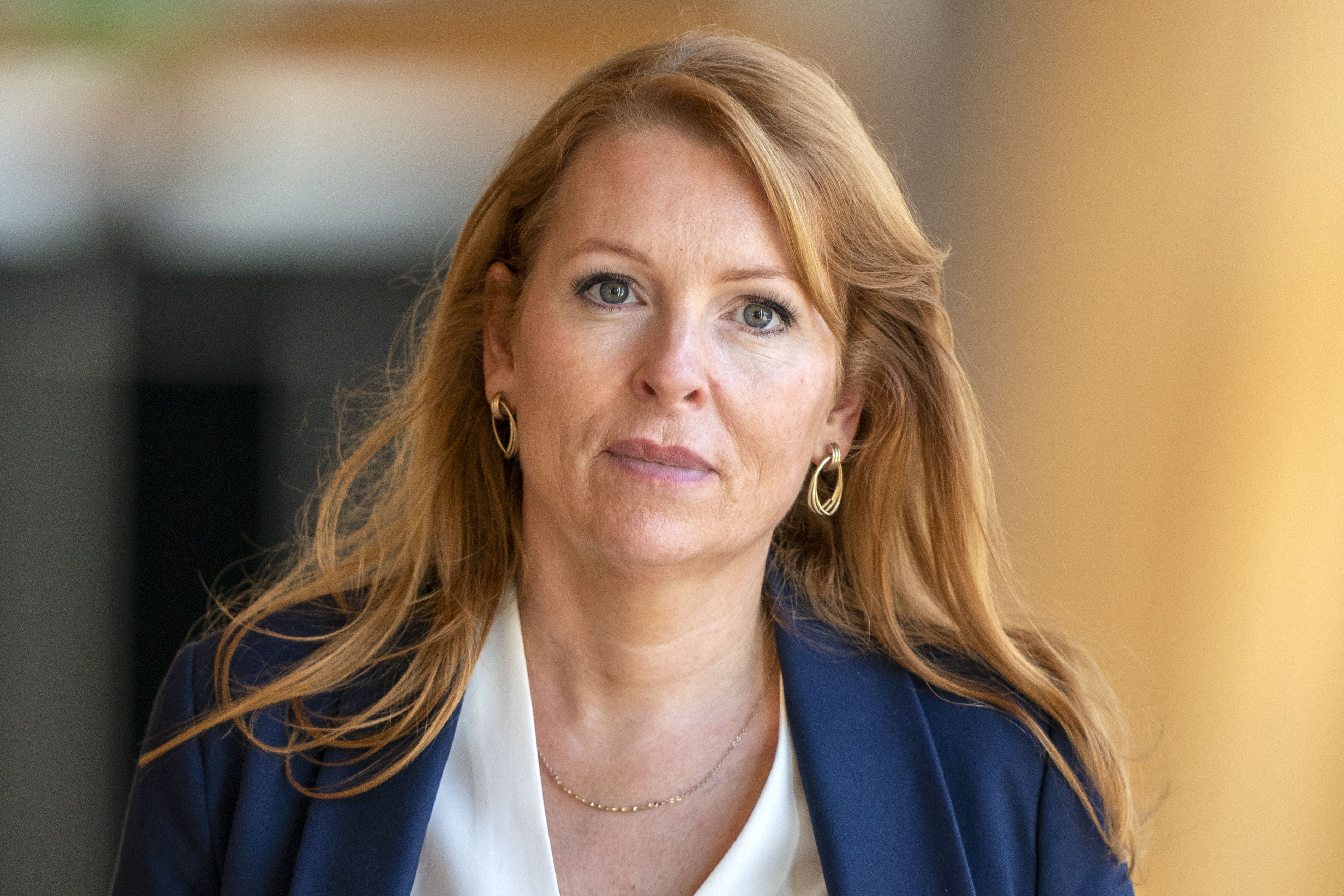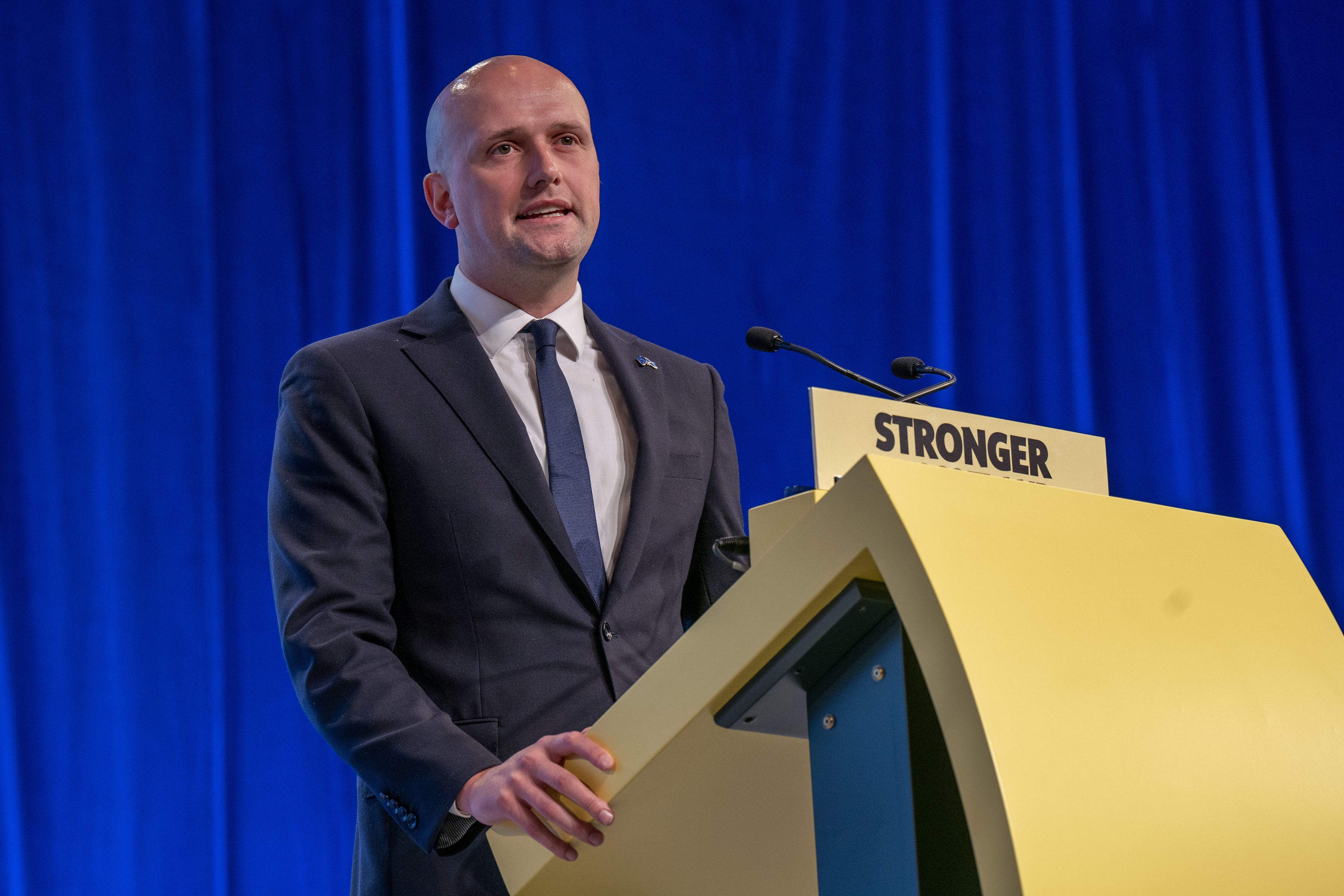Humza Yousaf vows to fight on amid growing crisis in his leadership
Humza Yousaf was due to speak about the labour strategy in an independent Scotland, but cancelled the plan amid a growing crisis in his leadership

Your support helps us to tell the story
From reproductive rights to climate change to Big Tech, The Independent is on the ground when the story is developing. Whether it's investigating the financials of Elon Musk's pro-Trump PAC or producing our latest documentary, 'The A Word', which shines a light on the American women fighting for reproductive rights, we know how important it is to parse out the facts from the messaging.
At such a critical moment in US history, we need reporters on the ground. Your donation allows us to keep sending journalists to speak to both sides of the story.
The Independent is trusted by Americans across the entire political spectrum. And unlike many other quality news outlets, we choose not to lock Americans out of our reporting and analysis with paywalls. We believe quality journalism should be available to everyone, paid for by those who can afford it.
Your support makes all the difference.Humza Yousaf has vowed to fight on ahead of a vote of no confidence in his leadership, declaring: “I have every intention of winning.”
The defiant Scottish first minister accused opposition parties in Holyrood of acting in bad faith, and said he will seek to meet party leaders in a bid to “make minority government work”.
Hours after he cancelled a speech on Scottish independence amid the growing crisis for the SNP, Mr Yousaf told Sky News: “I intend absolutely to fight that vote of no confidence – I’ve got every intention of winning that vote of no confidence.”

The beleaguered SNP leader, who succeeded Nicola Sturgeon last March, could be forced to quit as soon as next week, as his former coalition partners are planning to topple him in a vote of no confidence.
The Scottish Tories, led by Douglas Ross, tabled the motion just hours after the governing partnership collapsed as the SNP leader ended his coalition agreement with the Greens. Labour is also tabling a motion of no confidence in the Scottish government itself, which could force an election. Mr Ross has said he will back Labour’s motion.
Scottish Labour leader Anas Sarwar said it is now “a matter of when, not if, Humza Yousaf resigns”. But he told LBC that “it would be completely untenable for the SNP to presume they could impose another unelected first minister on Scotland”.
Mr Yousaf vowed to fight the no-confidence vote next week, saying he has “every intention of winning”.
The first minister added: “And let me say to the opposition, for minority government to work in the interest of the people of Scotland also requires the opposition to act in good faith.”
He said he has heard the “anger and upset” of the Green Party after he ejected it from the Scottish government on Thursday.
He added: “What I will do is I’ll be writing to all the political party leaders, all the party groups represented in the Scottish parliament – including, of course, Patrick Harvie and Lorna Slater [the co-leaders of the Scottish Green Party] – asking them to meet with me, to say ‘How do we make minority government work?’ It’s in the best interests of the people of Scotland that all of us act in good faith and make it work.”
Tensions between the SNP and the Greens reached the point of no return after ministers ditched a key climate-change target and moved to pause the use of puberty blockers.
With his party holding only 63 of Holyrood’s 129 seats, Mr Yousaf will now be forced to rely on the support of former leadership challenger Ash Regan to prop up his premiership.
The Conservatives, Labour, Greens and Liberal Democrats are planning to vote against him.
Ms Regan defected to the former Scottish first minister Alex Salmond’s Alba Party months after losing the SNP leadership election, with Mr Yousaf saying at the time that it was “no great loss” for the SNP.

She may now hold Mr Yousaf’s fate in her hands.
She has written to Mr Yousaf to say Scotland “deserves and demands a reset”, calling for a greater focus on Scottish independence, “the dignity, safety and rights of women and children”, and providing competent government.
Alba has repeatedly criticised Mr Yousaf’s focus on “divisive” issues such as gender identity.
Ms Regan also said her “door is open” to discuss a proposed bill on holding a referendum on whether the Scottish parliament should have the power to hold another independence vote.
Speaking to the BBC, Ms Regan added: “I’m not setting out specific demands as such, I’m putting the ball into Humza’s court for him to come back to me and explain to me how he will make progress in a couple of these areas, particularly around the return to a competent government.”
Allies of Mr Yousaf have insisted he will “come out fighting” in the face of the concerted effort by opponents to oust him. The cancellation of his public appearance on Friday suggests that he is scrambling to salvage his political future.

SNP Westminster leader Stephen Flynn said it was “the right thing to do” after Mr Yousaf scrapped the so-called Bute House Agreement with the Scottish Greens. He also said he would not stand as a candidate for the SNP leadership if Mr Yousaf resigned.
Mr Flynn told the BBC: “What I would gently urge all politicians in Holyrood to do, now that we are of course a minority government, is to have some cool heads and some calm words this weekend to reflect upon the consequences of any decision that were to be taken or otherwise in relation to whom or who is not the first minister, and come to a conclusion which I believe would be much more reasonable.”
Next week’s confidence vote is not binding, meaning it would be up to the first minister to decide how to respond to losing the confidence of the Scottish parliament.
But if Mr Yousaf lost, he would be under immense pressure to quit. The SNP would then have 28 days to put forward a leader who can command the support of Holyrood, or an election would be called.
The Bute House Agreement, which was signed in 2021 and is named after the official residence of the first minister in Edinburgh, brought the Scottish Greens into government for the first time.
The deal gave the SNP a majority at Holyrood when the votes of its MSPs were combined with those of the seven Green Party members, and also made Green co-leaders Mr Harvie and Ms Slater junior ministers in the Scottish government.
At a press conference on Thursday, Mr Yousaf insisted the SNP would continue as a minority government in Scotland. The Greens were set to have a vote on whether to end the agreement, with Mr Yousaf scrapping it before the smaller party could.
Ms Slater accused the SNP of “selling out future generations” by walking away from the Bute House deal. Confirming the end of the cooperation agreement, she said: “This is an act of political cowardice by the SNP, who are selling out future generations to appease the most reactionary forces in the country.”
The crisis comes at an increasingly challenging time for the SNP, with its former chief executive Peter Murrell, the husband of former first minister Nicola Sturgeon, having been charged in connection with the embezzlement of SNP funds.
Police Scotland confirmed this month that Mr Murrell, who served as the party’s chief executive for 22 years, had been arrested and charged in relation to the investigation. Ms Sturgeon was arrested two months after her husband was first arrested in April last year, while former party treasurer Colin Beattie was also arrested last year. Both were released without charge pending further investigation.
Join our commenting forum
Join thought-provoking conversations, follow other Independent readers and see their replies
Comments